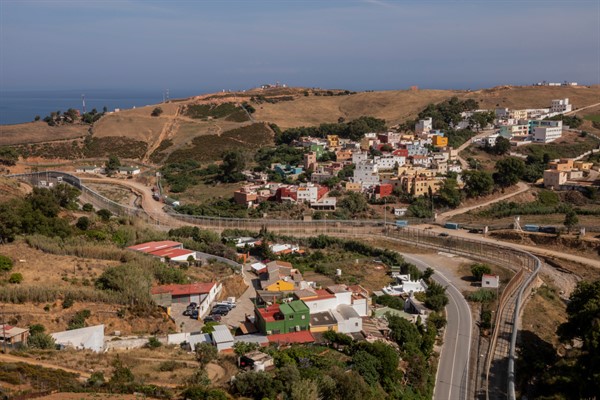CEUTA, Spain—In March 2020, Morocco closed its land borders around Spain’s North African enclaves of Ceuta and Melilla, citing the need to prevent the spread of COVID-19. They have remained closed since, and with no indication of when they might reopen amid diplomatic tensions between Spain and Morocco, the two enclaves have been forced to confront their dependency on a newly assertive Morocco and come up with a radically different economic model.
The economic picture in the enclaves, each of which hosts some 85,000 residents, has rarely been pretty. Today, about half the salaried workers in each are employed by the Spanish government, but they have some of the highest unemployment rates in Europe: nearly 30 percent in Ceuta and 20 percent in Melilla. Before the pandemic, much of the enclaves’ private enterprise depended on a particular form of border trade known as atypical commerce, in which goods would be shipped into the enclaves from around the world, then driven to the border with Morocco, where thousands of Moroccan “porters,” mostly women who would have entered the enclaves that morning, would be waiting to carry them into Morocco for a few euros. These huge, backbreaking packages still counted as hand luggage, avoiding Moroccan customs taxes.
This unusual mode of commerce was enabled by several unique aspects of the enclaves’ relationships with Spain and the European Union. For one, they are outside the EU’s customs union and levy a low tax on goods shipped in—much lower than the rates charged elsewhere in Spain and in Morocco. The enclaves are also subject to special rules under the Schengen Treaty, which allow Moroccan residents of Tetouan and Nador—the regions surrounding Ceuta and Melilla, respectively—to enter freely for the day, but without the option of travelling onward to the Spanish mainland.

